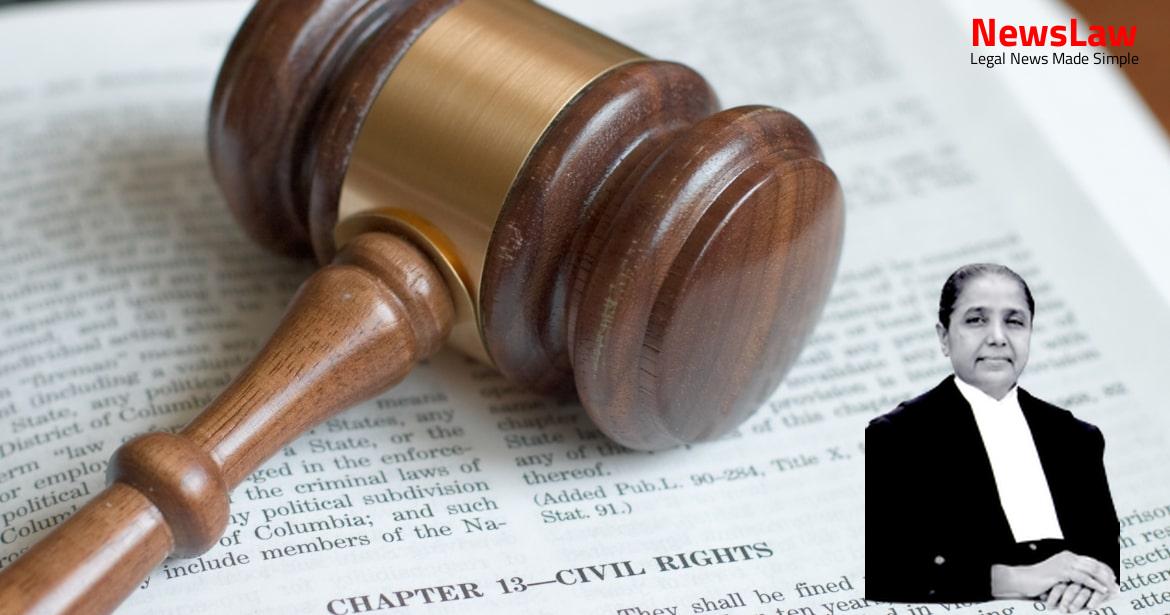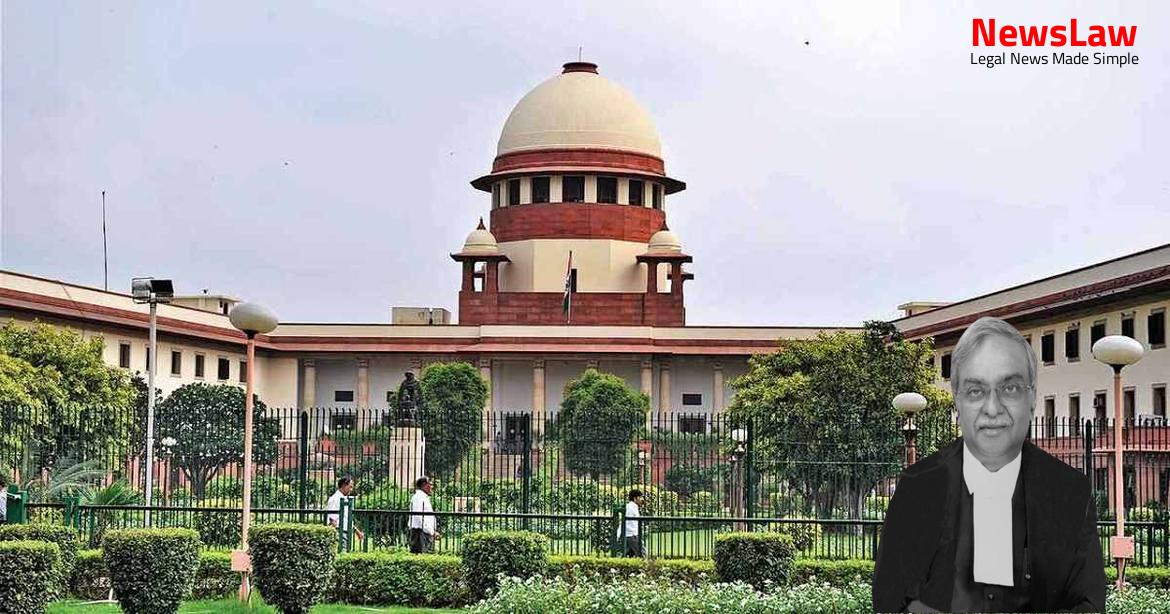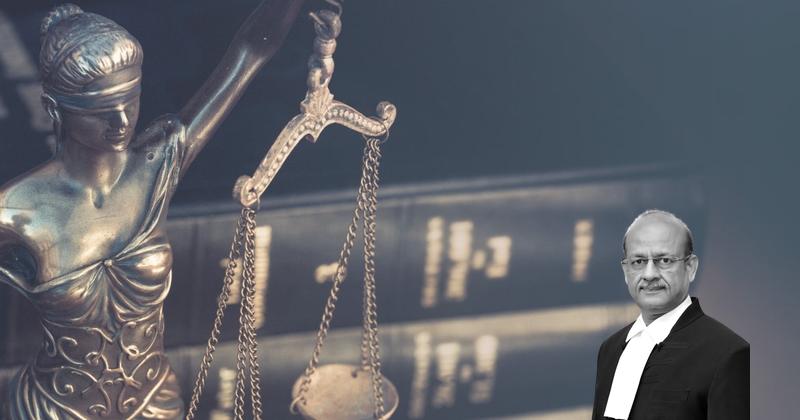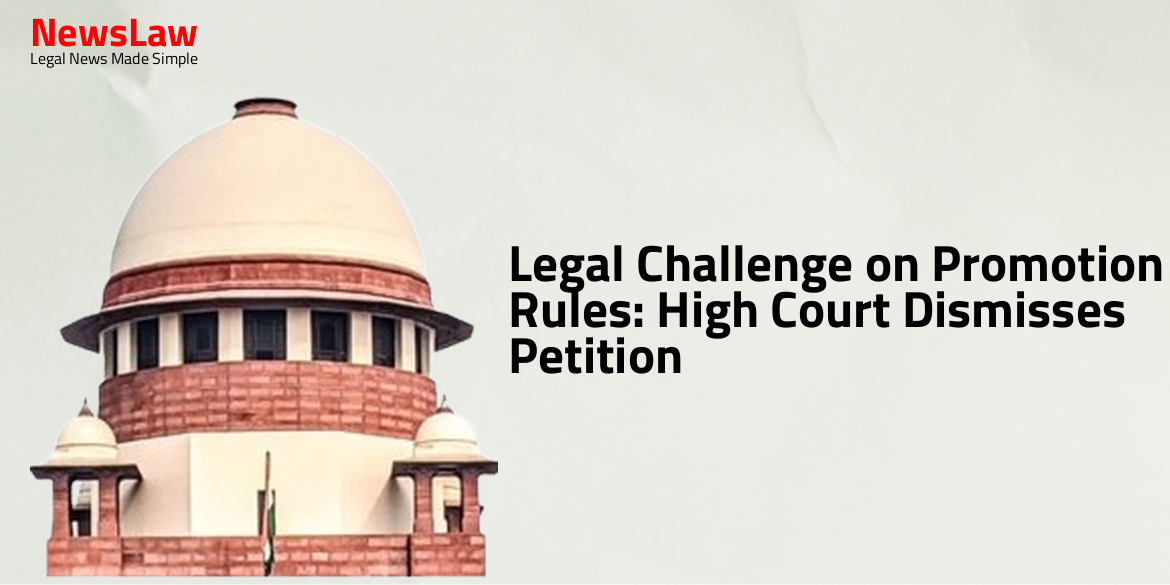Explore the judicial interpretation surrounding disqualification on the grounds of defection in this legal case summary. The analysis delves into the significance of party membership for elected representatives and the impact of voluntarily giving up such membership. The court’s in-depth legal analysis sheds light on the timeline of disqualification and the relevance of subsequent events in determining the legality of the disqualification order. Stay tuned to unravel the complexities of disqualification under the Tenth Schedule of the Constitution of India.
Facts
- The appellant filed an application seeking permission to submit additional documents and material for the record, which was rejected by the High Court.
- The application was opposed by the writ petitioner who denied the averments made in the application.
- The appellant then filed an appeal against the interlocutory order dated 11.09.2018 passed by the Delhi High Court in C.M. Application No 27159 of 2018.
- The brief facts of the case leading to the appeal include the disqualification of the respondent No.1, a Member of Parliament (Rajya Sabha) from Bihar on a Janata Dal (United) ticket.
- The Chairman, Rajya Sabha, determined that the respondent had voluntarily given up his membership of the political party and was disqualified.
- The respondent denied forming any new political party in his affidavit.
- The appellant had filed a petition for disqualification of the respondent under the Tenth Schedule of the Constitution of India.
- The appellant was aggrieved by the order rejecting the application and hence filed the appeal.
- The High Court dismissed the application in its judgment dated 11.09.2018.
Also Read: Interpretation of Lease Agreement and Compulsory Registration
Arguments
- Shri Ranjit Kumar, senior counsel, argues that the subsequent conduct of the respondent confirms the Chairman’s findings that he voluntarily gave up his membership of JD(U)
- The respondent was elected to the Rajya Sabha on the JD(U) ticket from Bihar
- The petitioner alleges that the respondent’s repeated conduct, public statements against JD(U), and alignment with rival party RJD indicate voluntary giving up of membership, leading to disqualification under the Tenth Schedule of the Constitution
- Shri Kapil Sibal, representing the respondent, argues that subsequent events are not relevant in the case of disqualification that has already been determined by the Chairman of the Rajya Sabha.
- Disqualification under the Tenth Schedule occurs on the day the member voluntarily gives up their membership of the political party from which they were elected.
- The adjudication of disqualification relates to the date when the member voluntarily gave up their membership, even if determined subsequently by the Speaker or Chairman.
- Both previous and subsequent conducts are deemed relevant according to Section 8 of the Evidence Act.
- The petitioner’s main argument is that the respondent engaged in anti-party activities by denouncing the decision of the JD(U) and participating in events with rival political parties after being directed not to by the party leadership.
- As a result of the actions of the respondent, he is considered to have voluntarily given up his membership of JD(U) and has been disqualified as a member of the party.
Also Read: Enhancing Compensation and Modifying Sentences: A Legal Analysis
Analysis
- The order passed by the Chairman is based on a petition dated 02.09.2017 and evidence brought before the Chairman.
- Additional evidence sought to be brought in the writ petition was not the basis for seeking disqualification.
- The writ petition pending challenges the Chairman’s order on disqualification of the respondent.
- The grounds for disqualification were laid in the petition referring to respondent’s actions against their party.
- The order was founded on facts and events post-26.07.2017.
- Subsequent events can be considered for testing the legality of the impugned order or for molding relief in a writ petition under Article 226.
- Observations made need not be construed as preventing consideration of subsequent events.
- The High Court’s order was upheld with observations and the request for early disposal of the writ petition.
- The appeal was dismissed with the above observations, focusing on a narrow set of points.
- No error was found in the High Court’s rejection of C.M. Application No 27159 of 2018.
- Disqualification on the ground of defection is incurred by a member of the House as soon as he voluntarily gives up his membership of a political party.
- For the purposes of determining party affiliation, an elected member of a House is deemed to belong to the political party by which he was set up as a candidate for election.
- Members of a House belonging to any political party are subject to disqualification for defection.
- The decision of the Speaker or the Chairman on disqualification must be determined with reference to the date it was incurred, not the date of the decision.
- A member is disqualified if they voluntarily give up membership of a political party or defy a whip.
- A decision by the Speaker or Chairman on disqualification relates back to the date of the disqualifying action.
- Subsequent events can be considered by the High Court if relevant to the state of affairs when disqualification was incurred.
- The act of disqualification occurs at the point of giving up party membership or defiance of a whip, not at the point of the decision by the Speaker.
- Evidence can be considered by the court as needed, even if subsequent to the passing of the Speaker’s decision.
- Equity justifies bending procedural rules for substantial justice, subject to fair play.
- The term ‘voluntarily given up his membership’ is broader than just ‘resignation.’
- The power of the Speaker to decide on disqualification dates back to the action leading to disqualification.
Also Read: Transfer of Writ Petitions for Chartered Accountants’ Tax Audit Guidelines
Case Title: RAM CHANDRA PRASAD SINGH Vs. SHARAD YADAV (2020 INSC 322)
Case Number: C.A. No.-002004-002004 / 2020



